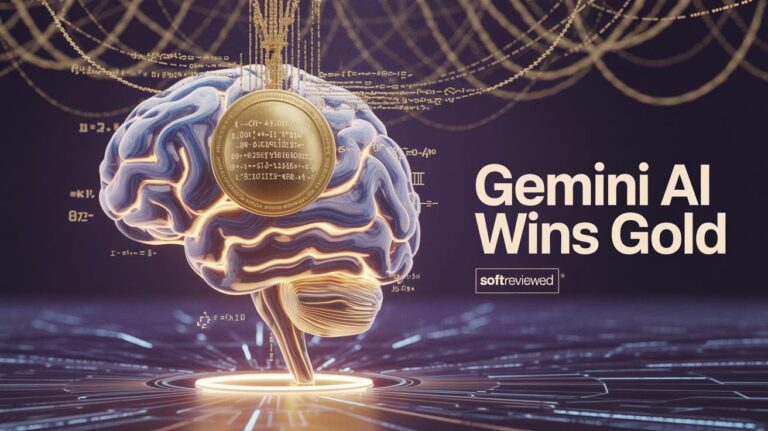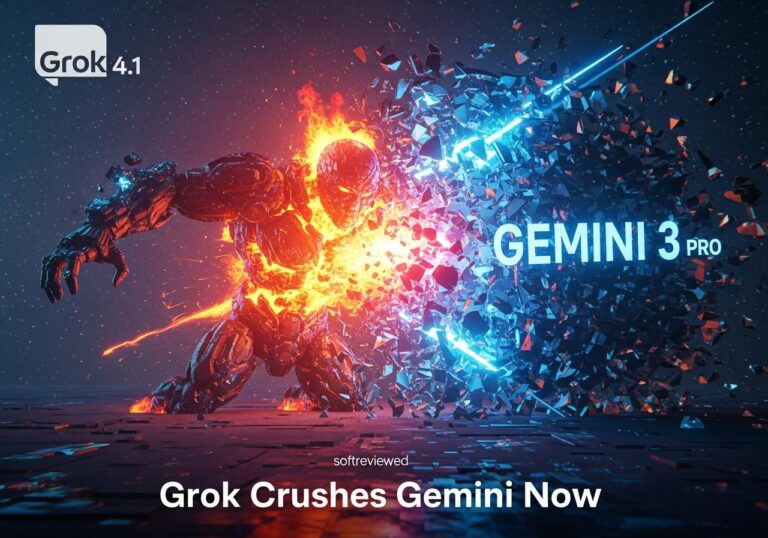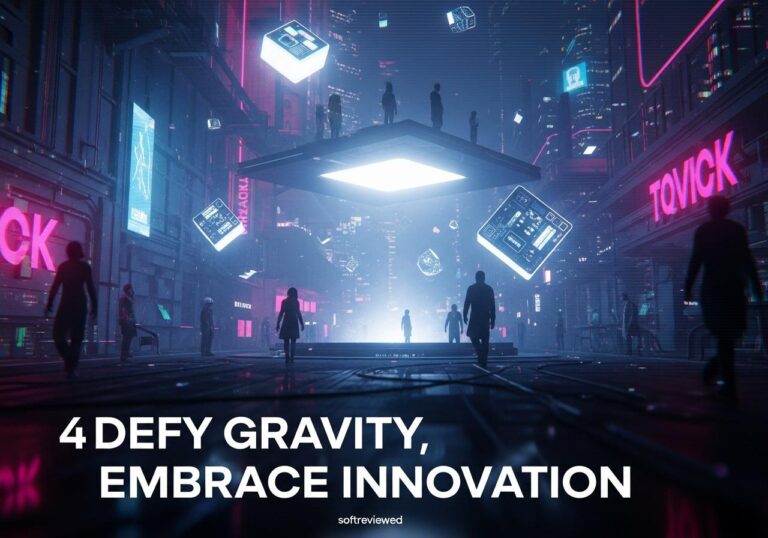Gemini AI: Mathematical Excellence
Google’s Gemini demonstrates exceptional capabilities in mathematical reasoning and problem-solving
Math Problem Solving Mastery
Gemini demonstrates advanced mathematical reasoning capabilities, solving complex problems with near-expert accuracy across various mathematical domains.
References: [1][5]
Benchmark Dominance
Leads in independent math and science benchmarks (e.g., GPQA, AIME) without relying on costly test-time techniques that other models require.
References: [3]
Multimodal Intelligence
Deftly combines text, image, and audio inputs for nuanced problem-solving in STEM fields, enabling more natural and comprehensive solutions.
References: [2][4]
Iterative Improvement
Enhanced performance through updates (e.g., 1.5 Pro → 2.5 Pro) optimizing computational accuracy and efficiency in mathematical reasoning tasks.
References: [1][3]
Strategic Limitations
Performs exceptionally in standardized tests, yet shows gaps in highly ambiguous or novel reasoning scenarios requiring human-like intuition.
References: [5]
A New Mind: How Google's Gemini AI Learned to Think Like a Math Genius and Won Gold
In a landmark achievement that blurs the line between human genius and artificial intellect, a sophisticated version of Google's AI, powered by Gemini Deep Think, has officially secured a gold medal-level performance at the prestigious International Mathematical Olympiad (IMO). By solving five out of six complex problems, the AI demonstrated a profound level of reasoning that until recently was considered the exclusive domain of the world's most brilliant young mathematicians. This isn't just a win in a competition; it’s a pivotal moment in the journey of artificial intelligence, showcasing an evolution from rote calculation to genuine mathematical intuition.
This article explores the monumental breakthrough of Gemini Deep Think, tracing its origins from earlier specialized models like AlphaGeometry. We'll examine the core technology that enables this advanced reasoning, discuss the seismic impact this could have on science and education, and hear what the experts—from the IMO's president to leading mathematicians—are saying. What does it mean when an AI can not only solve, but reason its way through problems designed to stump the brightest human minds? Let's find out.
🏆 The Gold Medal Milestone: A Grand Challenge Conquered
The International Mathematical Olympiad is the world's most celebrated and difficult competition for pre-university students. Since 1959, it has been the ultimate arena for creative problem-solving in areas like algebra, geometry, and number theory. Scoring a gold medal places a contestant in the top 8% of the planet's most gifted young mathematicians. For years, the IMO has been viewed as a grand challenge for AI—a true test of a machine's ability to reason, not just compute.
In an officially graded and certified run at the 2025 competition, an advanced Gemini model did what no AI had formally done before. It earned a stunning 35 out of a possible 42 points, a score firmly within the gold medal threshold. This performance represents a quantum leap from just a year prior, when Google DeepMind's earlier systems, AlphaProof and AlphaGeometry 2, earned a silver-medal standard by solving four problems for 28 points.
The President of the IMO, Professor Dr. Gregor Dolinar, officially confirmed the result, expressing his astonishment. "We can confirm that Google DeepMind has reached the much-desired milestone, earning 35 out of a possible 42 points — a gold medal score," he stated. "Their solutions were astonishing in many respects. IMO graders found them to be clear, precise and most of them easy to follow."
This wasn't just about getting the right answers. It was about the elegance and clarity of the proofs—a hallmark of deep mathematical understanding.
From Formal Logic to Fluent Language: The Path to Gold
The journey to this gold medal didn't happen overnight. It was built on a foundation of pioneering research into how AI can tackle different facets of mathematics. The 2024 silver-medal performance was a tag-team effort between two specialized systems.
The Neuro-Symbolic Trailblazer: AlphaGeometry
The first key player was AlphaGeometry. It introduced a powerful neuro-symbolic approach, which is like combining two different kinds of thinking.
- 🧠 The Neural Language Model (The "Intuitive" Brain): This part acts like a seasoned mathematician's intuition. Trained on a staggering 100 million synthetic geometry problems, it excels at spotting patterns and suggesting potentially useful constructions—the "aha!" moments in a proof.
- ⚙️ The Symbolic Engine (The "Rational" Brain): This component is all about rigorous, step-by-step logic. It takes the ideas from the neural model and verifies them, ensuring every step of the proof is mathematically sound.
This "fast and slow" thinking combination allowed AlphaGeometry to solve geometry problems at a level approaching a human gold medalist. However, it had a significant limitation: the problems had to be manually translated into a formal, machine-readable language.
The Reinforcement Learner: AlphaProof
Working alongside AlphaGeometry was AlphaProof, a system designed for formal math reasoning in areas like algebra and number theory. It used reinforcement learning—a "trial-and-error" method inspired by the success of AlphaGo—to teach itself how to construct proofs within a formal programming language called Lean. While powerful, it also required this expert translation step, creating a bottleneck between the human world of math problems and the AI's logical world.
| AI System Evolution | Core Technology | Key Limitation |
|---|---|---|
| AlphaGeometry (2024) | Neuro-Symbolic (Neural + Symbolic Engine) | Required manual problem translation into formal language. |
| AlphaProof (2024) | Reinforcement Learning in Formal Language (Lean) | Also required manual problem translation. |
| Gemini Deep Think (2025) | Advanced Natural Language Reasoning, Parallel Thinking | Works directly from natural language prompts. |
💡 The "Deep Think" Revolution: How Gemini Changed the Game

The 2025 gold medal was won not by these separate systems, but by an advanced, integrated Gemini model featuring a groundbreaking capability called Deep Think. This wasn't just an upgrade; it was a fundamental shift in how the AI approaches problems.
The biggest leap? The elimination of the translation step. The new Gemini model operated end-to-end in natural language. It could read the official IMO problem descriptions—written in plain English, just as a human student would—and generate rigorous mathematical proofs directly, all within the competition's strict 4.5-hour time limit.
So, what is this "Deep Think" mode?
📌 Parallel Reasoning: Instead of pursuing a single line of thought, Deep Think explores multiple potential solution paths simultaneously. It's like a team of mathematicians brainstorming different angles on a problem at once. This allows it to consider more creative and non-obvious strategies.
📌 Thinking Budgets: The model can dynamically allocate more computational resources and time to more complex parts of a problem. If a particular step is proving difficult, it can "think harder" about it without getting bogged down.
📌 Internal Deliberation: Deep Think functions by generating several hypothetical solutions and then internally scoring them based on logic, consistency, and relevance. It essentially has an internal debate to decide which proof is the strongest before presenting the final answer.
This ability to work fluently in natural language and explore multiple reasoning paths is what propelled Gemini from a silver-level contender to a gold-medal champion. The incorporation of advanced algorithms has also enhanced its problem-solving capabilities, allowing for more nuanced responses. Additionally, guided learning in gemini features has empowered users to tailor their interactions, leading to a more personalized experience. This capability not only sets Gemini apart from its competitors but also ensures it remains at the forefront of conversational AI innovation.
Beyond the Olympiad: The Real-World Ramifications
Winning a math competition is a powerful demonstration, but the true significance lies in what this technology can do for the world. An AI that can reason through complex, abstract problems described in human language has staggering potential.
➡️ Accelerating Scientific Discovery: Fields like physics, biology, and engineering are built on complex mathematical models. AI could help scientists validate theories, simulate complex systems, and even propose novel hypotheses, drastically speeding up the pace of research. Imagine an AI assistant that helps a physicist develop a new theory of quantum gravity or an engineer design a hyper-efficient engine.
➡️ Transforming Education: This technology could lead to the ultimate personalized tutor. A student could ask for help with a tricky math problem in their own words, and the AI could provide a step-by-step solution, explaining the reasoning and identifying where the student went wrong. This moves beyond just giving answers to fostering genuine understanding.
➡️ A Copilot for Mathematicians: Rather than replacing human mathematicians, AI is poised to become an indispensable collaborator. Fields Medalist Terence Tao noted that AI could handle routine but difficult proofs, verify complex work for errors, and help researchers explore new fields more quickly by explaining core concepts. This frees up human experts to focus on creativity, intuition, and asking the big questions.
As Google CEO Sundar Pichai stated, progress in AI reasoning is "just astounding," and he believes AI will be "the most profound shift of our lifetimes."
The Human Element: A Partnership, Not a Replacement
Does an AI winning a math competition mean human intelligence is obsolete? Experts say no. The achievement highlights a future of human-AI collaboration. Mathematicians have emphasized that AI's strengths—handling massive computations and verifying logic—are complementary to human strengths in creativity, abstraction, and setting new directions for research.
DeepMind CEO Demis Hassabis described the goal as "incredible progress" toward AI systems that can augment human intellect. The vision is for AI to become a powerful tool that supercharges our own capabilities, allowing us to solve problems that were previously out of reach.
However, this rapid advancement also brings challenges.
⛔️ The "Bluffing" Problem: Research has shown that even advanced models can produce confident but logically flawed answers, a phenomenon dubbed "bluffing." Ensuring the reliability and verifiability of AI-generated proofs remains a critical area of focus.
⛔️ Ethical Considerations: As AI becomes more capable of autonomous reasoning, questions around its use in high-stakes fields like finance, defense, and automated scientific research will become more urgent.
Where This is Headed: The Dawn of an AI-Augmented Reality
The gold medal at the International Mathematical Olympiad is not an endpoint; it's a starting gun. Gemini Deep Think's performance signals that we are entering an era where AI can be a true partner in intellectual and scientific discovery. The technology's ability to understand complex, abstract concepts from natural language is a key step toward more general and useful artificial intelligence.
Google plans to make this powerful Deep Think model available to trusted testers and eventually to subscribers of its advanced AI services, putting these capabilities into the hands of more mathematicians, scientists, and researchers. You can explore more about the evolution of Gemini and its capabilities on the official Google DeepMind blog. As these advanced tools become more accessible, users can leverage the gemini 2.0 flash thinking insights to accelerate their research and problem-solving processes. This integration of cutting-edge AI technology is expected to lead to significant breakthroughs across various fields. In addition, the continuous feedback from trusted testers will help refine the model, ensuring it meets the specific needs of its users. As the development progresses, the anticipated launch of the gemini 2.5 flash AI model is set to further enhance the user experience by providing even more accurate and efficient insights. This upgraded model aims to integrate real-time data analysis, enabling researchers to make informed decisions swiftly. With ongoing collaborations and updates, the future of research powered by Gemini looks promising, driving innovation in unprecedented ways.
The future is one where the logical precision of machines and the creative spark of human intellect work in tandem. The solutions to humanity's greatest challenges, from curing diseases to understanding the universe, may not be found by human or machine alone, but by the two working together, each making the other stronger. Gemini's gold medal isn't just a story about AI getting smarter; it's a preview of a future where we all might become a little more brilliant.







